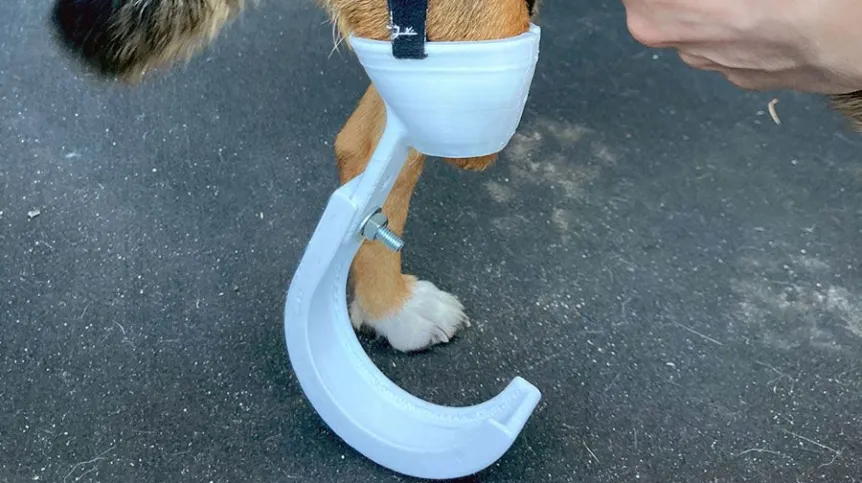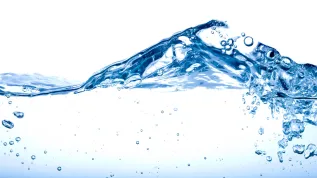
A veterinary student has created 3D ‘printed prostheses’ for injured animals.
M.A. student Maciej Szczepański from the Wrocław University of Environmental and Life Sciences used impressions and digital scanning to create the prostheses for two dogs who lost their paws after one was hit by a train and the other by a car.
Szczepański said: “The first dog was recommended to me by a vet from my home town Opoczno, the second by a colleague from my year. The owners immediately agreed. I am certain that I will help their pets.
'I am interested in the veterinary orthopaedics and for a long time I have been thinking about using 3D printing for the treatment of animals after partial limb amputation.
“This is a much cheaper method than an endoprosthesis, for example. This is a fresh topic in Poland, but in countries like the US it is a common alternative method of treating mutilated animals.”
The first prosthesis has already been printed, and work is underway in improving the harness. The second prosthesis is in preparation.
Szczepański said: “I want my project to be popular, to help stop the degeneration of muscle and joints and improve the quality of life of dogs. I hope that in the future I will be able to help as many animals as possible.”
Szczepański is a laureate of the first edition of the Implementation Master's Student programme at the Wrocław University of Environmental and Life Sciences. The program supports students, whose master's projects are characterized by creativity, high scientific potential and innovativeness. The projects must additionally respond to the needs of the economy, labour market and society.
Students who receive a PLN 1,500 per month scholarship for half a year (with the possibility of extension by another 6 months), work on the implementation of scientific projects in close cooperation with promoters. The promoter of Maciej Szczepański's project is Professor Jakub Nicpoń.
(PAP)
author: Roman Skiba
ros/ agt/ kap/
tr. RL













